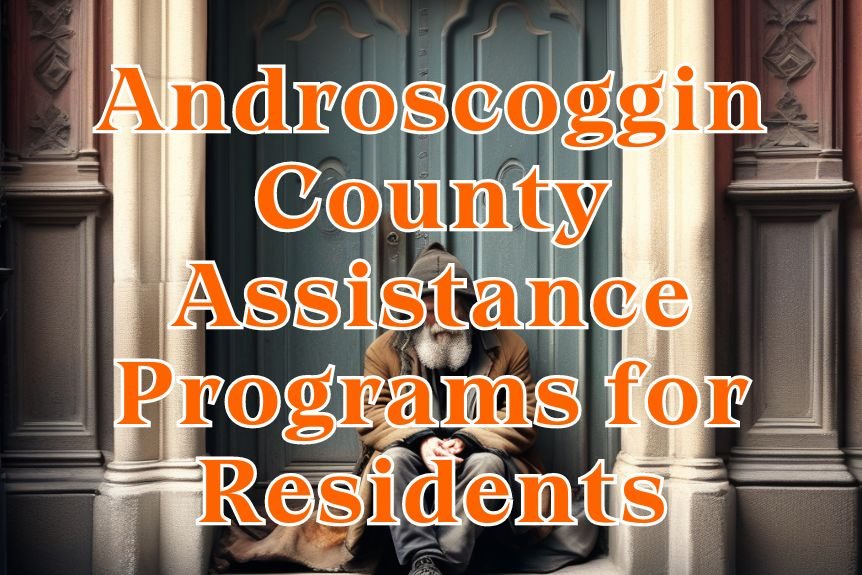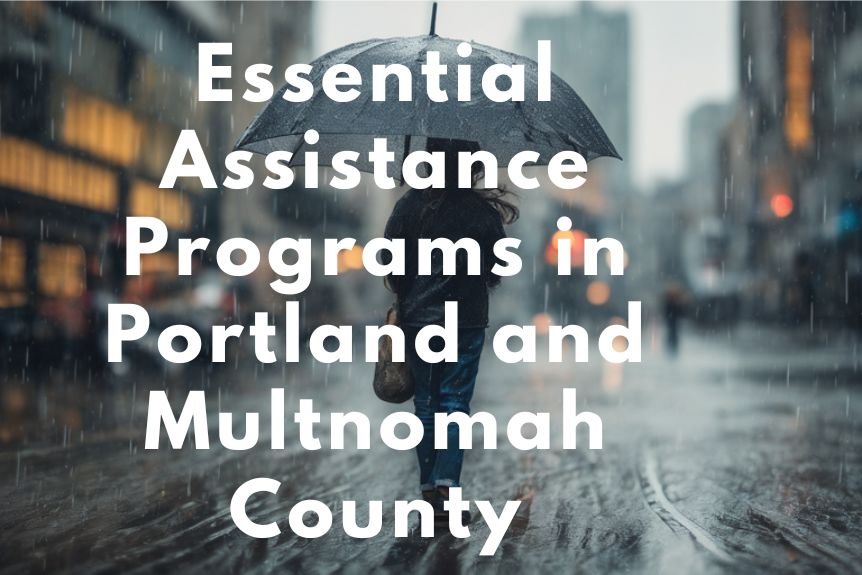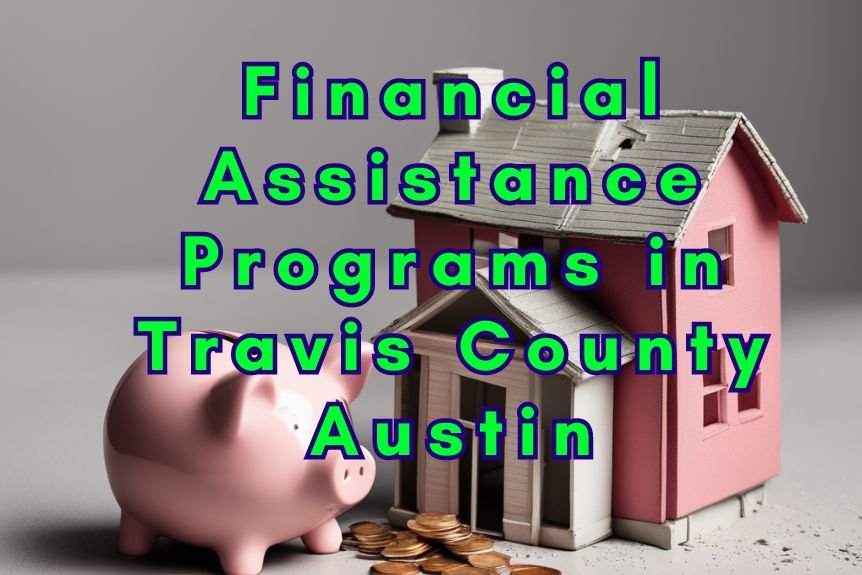Connecticut’s financial assistance landscape offers a mosaic of support programs designed to uplift its residents during times of need. From housing assistance initiatives to healthcare support programs and educational grants, the state has curated a top 10 list of essential aid avenues.
These programs not only provide immediate relief but also foster long-term financial stability for individuals and families. As we explore each program’s unique offerings and impact on the community, a deeper understanding of Connecticut’s commitment to its citizens’ welfare unfolds, shedding light on the pivotal role these initiatives play in fostering resilience and empowerment.
Housing Assistance Programs

Housing Assistance Programs in Connecticut play a crucial role in providing vital support services and resources to low-income individuals and families facing housing instability. These assistance programs offer a range of services such as rental assistance, eviction prevention, and access to affordable housing options. By addressing basic needs like shelter, these programs aim to combat homelessness and ensure housing stability for vulnerable populations. Eligibility criteria for these programs often include considerations like income limits, household size, and residency requirements within the state.
In addition to financial aid, some Housing Assistance Programs provide valuable case management services, housing counseling, and other support services to help individuals and families maintain stable housing situations. Collaboration with local agencies, non-profits, and government entities is common practice among these programs to maximize resources and effectively meet the diverse needs of the community. Through a multifaceted approach, Housing Assistance Programs in Connecticut strive to enhance the quality of life and promote stability for those experiencing housing challenges.
Healthcare Support Programs
Healthcare support programs in Connecticut, such as Medicaid, SNAP for Food, and Energy Assistance Programs, play a crucial role in providing essential services to individuals and families in need.
These programs are designed to ensure that vulnerable populations have access to vital healthcare services, nutritious food, and assistance with energy costs.
Medicaid for Healthcare
Access to Medicaid benefits is crucial for Temporary Family Assistance (TFA) families in Connecticut, ensuring essential healthcare support for recipients. TFA families are automatically eligible for Medicaid benefits for at least two years after becoming ineligible for TFA. This safety net ensures continued access to vital medical assistance, including child care and support services.
Additionally, State Supplement Cash Assistance recipients also qualify for Medicaid coverage, providing further assistance to supplement their income sources. Moreover, working family members of TFA recipients can also benefit from Medicaid assistance, promoting the overall health and well-being of the entire family unit.
Medicaid plays a vital role in supporting the healthcare needs of vulnerable families in Connecticut, acting as a crucial safety net for those in need.
SNAP for Food
Within the realm of social welfare programs aimed at supporting vulnerable populations in Connecticut, the Supplemental Nutrition Assistance Program (SNAP) serves as a fundamental resource for providing food assistance to eligible low-income individuals and families.
SNAP Program Overview:
- SNAP helps needy families purchase nutritious food at authorized retailers through an EBT card.
- Eligibility is determined based on income, household size, and expenses.
- Benefits vary according to individual circumstances but do not cover alcohol, tobacco, vitamins, or hot prepared foods.
SNAP plays a critical role in addressing food insecurity among low-income households, offering much-needed help in accessing essential nutrition without requiring cash assistance. Eligible recipients can apply for SNAP benefits online, by mail, or in person through the Connecticut Department of Social Services (DSS).
Energy Assistance Programs
During the winter months, Connecticut’s Energy Assistance Program plays a crucial role in providing financial support to low-income households for their heating and energy needs. The program, prioritizing vulnerable populations like the elderly and disabled, helps eligible households afford heating bills by considering income, household size, and energy costs.
Assistance extends to various energy sources such as oil, natural gas, electricity, and wood. By addressing energy insecurity, the program ensures that households can stay warm and safe throughout the cold season.
This initiative aligns with Connecticut’s focus on supporting low-income families through programs like Jobs First, aiming to enhance financial stability and overall well-being by addressing essential needs such as energy assistance.
Food Assistance Programs

Food Assistance Programs in Connecticut play a crucial role in addressing food insecurity among vulnerable populations.
Understanding the SNAP eligibility requirements, the benefits provided by WIC for families, and the locations of food pantries are essential components for individuals seeking assistance.
These programs aim to ensure that individuals and families have access to nutritious food options, promoting overall health and well-being in the community.
SNAP Eligibility Requirements
To determine eligibility for SNAP benefits in Connecticut, individuals must meet specific criteria related to income, household composition, and financial assets. Key points to consider include:
- Income Verification: Gross income must be below 185% of the federal poverty level for SNAP qualification.
- Asset Limits: Asset limits for SNAP are $3,500 for most households and $15,000 for households with an elderly or disabled member.
- Work Requirements: Able-bodied adults without dependents (ABAWDs) have specific work requirements for SNAP eligibility.
Meeting citizenship and residency requirements is also essential to qualify for SNAP benefits in Connecticut. By adhering to these guidelines, individuals can access the necessary financial assistance to support their nutritional needs.
WIC Benefits for Families
WIC Benefits for Families, a vital component of food assistance programs in Connecticut, offer crucial nutritional support to low-income pregnant women, new mothers, infants, and children up to age five. The program provides nutritional guidance, emphasizing healthy eating habits and breastfeeding support.
Eligibility for WIC is determined based on income, nutritional risk, and state residency. Participants receive vouchers to purchase specific healthy foods such as fruits, vegetables, whole grains, and infant formula. WIC aims to enhance the health outcomes of pregnant women and young children by ensuring access to essential nutrients.
Additionally, participants benefit from personalized nutrition counseling, breastfeeding support, and referrals to healthcare and social services, contributing to their overall well-being. WIC plays a significant role in addressing food insecurity and promoting the health and development of vulnerable populations in Connecticut.
Food Pantries Locations
Located strategically across Connecticut, various food pantries provide vital support by offering a diverse range of food items to individuals and families experiencing food insecurity. These food pantries ensure pantry accessibility by spreading their locations throughout the state.
Additionally, they prioritize fresh produce availability, offering fruits and vegetables to promote healthy eating habits. The community impact of these food assistance programs is substantial, as they play a crucial role in addressing food insecurity and hunger in Connecticut communities.
Individuals can visit these pantries to receive support with their food needs, regardless of their financial situation. The collaborative effort of these food pantries significantly contributes to alleviating hunger and promoting food security statewide.
Utility Bill Assistance
How do utility bill assistance programs in Connecticut provide crucial financial aid to eligible individuals and families?
Utility bill assistance programs in Connecticut play a vital role in supporting low-income households by offering financial aid to help cover essential utility costs. These programs not only help with immediate bill payments but also promote energy efficiency, budget planning, and crisis intervention.
Eligibility criteria typically consider factors such as income levels, household size, and specific program requirements. Assistance may come in various forms, including direct payments, credits, or subsidies towards electricity, gas, water, and heating bills.
Employment Training Assistance

Utility bill assistance programs in Connecticut not only provide crucial financial aid to eligible individuals and families but also serve as a gateway to employment training assistance initiatives aimed at enhancing participants’ job readiness and vocational skills. Employment training assistance programs in Connecticut are designed to equip individuals with the necessary skills and resources for securing gainful employment.
Here are three key aspects of these programs:
- Career Advancement: Participants receive job readiness training, vocational skills development, and career counseling to enhance their employability and advance in their chosen field.
- Job Placement: Support is offered in resume building, interview preparation, job search strategies, and networking opportunities to help individuals secure suitable employment opportunities.
- Skill Development: Access to job fairs, workshops, and apprenticeship opportunities is provided to assist individuals in entering or re-entering the workforce by focusing on skill-building and professional development.
Childcare Subsidies
Childcare subsidies in Connecticut play a vital role in assisting low-income families in accessing quality childcare services. Eligibility criteria for these subsidies are primarily based on factors such as income, family size, and specific work or education requirements. Families looking to avail themselves of childcare subsidies can apply through the Connecticut Office of Early Childhood. The application process typically involves submitting documentation to verify income, family composition, and other relevant information. It is essential for applicants to provide accurate details to determine their eligibility accurately.
While childcare subsidies aim to support working parents by making childcare more affordable, there are funding limitations to consider. These limitations may result in subsidies covering only a portion of the total childcare costs for eligible families. Understanding these funding limitations is crucial for families relying on childcare subsidies to plan their childcare expenses effectively. By navigating the eligibility criteria, application process, and funding limitations, low-income families can benefit from the essential support provided by childcare subsidies in Connecticut.
Educational Grants and Scholarships

Educational grants and scholarships in Connecticut offer crucial financial assistance to students pursuing higher education opportunities. Here are some key points to consider regarding educational grants and scholarships in Connecticut:
- Financial Literacy Programs and Eligibility Criteria: Before applying for grants and scholarships, students should familiarize themselves with financial literacy programs to make informed decisions. Eligibility criteria vary depending on the grant or scholarship, but commonly include factors such as academic merit, financial need, or specific demographics.
- Scholarship Application Tips and Selection Process: To increase the chances of receiving scholarships, students should pay attention to application deadlines, submit all required documents, and craft compelling personal statements. The selection process often involves a review committee assessing applications based on the established criteria.
- Grant Funding Availability and Disbursement Schedule: Grant funding availability may fluctuate based on the source of the grant. It is essential for students to keep track of disbursement schedules to ensure timely receipt of funds for educational expenses.
Transportation Assistance Programs
Enhancing mobility and accessibility for eligible individuals and families in Connecticut, the state’s Department of Social Services administers transportation assistance programs to alleviate financial burdens related to travel expenses. These programs aim to provide crucial support for individuals to access job opportunities, medical appointments, and other essential services. Eligibility criteria for these programs often consider factors such as income, family size, and specific program requirements.
The transportation assistance programs offered by the Connecticut Department of Social Services may include access to public transportation options, such as bus passes or vouchers, to facilitate easier travel for recipients. Additionally, some programs may offer travel reimbursement to help offset the costs associated with transportation.
Emergency Cash Assistance
Emergency Cash Assistance in Connecticut serves as a crucial resource for individuals and families facing immediate financial crises.
This program is designed to offer one-time financial support to cover essential needs like rent, utilities, and food during emergencies.
Understanding the eligibility requirements, application process, benefits, and limitations of this aid is vital for those seeking temporary relief in times of sudden hardship.
Eligibility Requirements for Emergency Cash
In assessing eligibility for Emergency Cash Assistance in Connecticut, the program carefully evaluates applicants based on their income, resources, and demonstrated need for immediate financial support.
To qualify for Emergency Cash Assistance, applicants must meet the following criteria:
- Income Requirements: Applicants must fall within the specified income limits to be considered eligible for emergency funds.
- Resource Evaluation: The program assesses the resources available to the applicant to determine the level of financial aid required.
- Demonstrated Need: Applicants must demonstrate a genuine and immediate need for cash support due to a crisis situation.
Application Process for Aid
When initiating the process for Emergency Cash Assistance in Connecticut, applicants are required to submit their requests through the state’s official website, providing comprehensive personal and financial information for evaluation. The application process involves document verification, where applicants may need to provide proof of identity, income, assets, and expenses. Subsequently, the Department of Social Services (DSS) conducts an application review to assess eligibility based on specific criteria set by the state. Upon successful completion of the review process, applicants may receive assistance approval. The table below summarizes the key steps in the application process for Emergency Cash Assistance:
| Application Process Steps |
|---|
| 1. Submit request online |
| 2. Document verification |
| 3. Application review |
Benefits and Limitations
The provision of Emergency Cash Assistance in Connecticut offers crucial financial support to eligible families experiencing crises or emergency situations. This assistance program serves as a lifeline for those in need, providing up to $1,000 to help individuals maintain financial stability during challenging times.
However, there are limitations to consider when applying for Emergency Cash Assistance in Connecticut:
- Recipients must meet strict income and asset limits to qualify.
- The program has a one-time limit within a 12-month period.
- Applicants need to demonstrate the emergency nature of their situation to receive aid promptly.
Legal Aid and Advocacy Services
Legal aid and advocacy services play a crucial role in providing free legal assistance to low-income residents in Connecticut through organizations like CTLawHelp. These services encompass legal representation, advocacy services, and rights protection for individuals facing legal challenges. The primary goal of these organizations is to enhance the quality of life for those in need by ensuring access to justice and legal support.
Funding for these essential services is sourced from entities such as Statewide Legal Services and New Haven Legal Assistance. Additionally, affiliated organizations like The Children’s Law Center and Lawyers for Children America collaborate to offer comprehensive support to vulnerable populations. CTLawHelp also partners with the Connecticut Veterans Legal Center to extend legal aid and advocacy services specifically tailored to veterans experiencing hardships.
Through these concerted efforts, legal aid organizations in Connecticut strive to address the legal needs of low-income individuals and contribute to a more equitable and just society.






